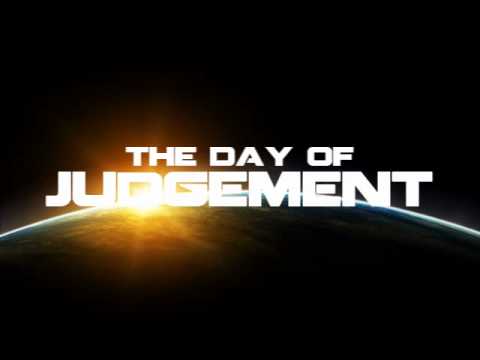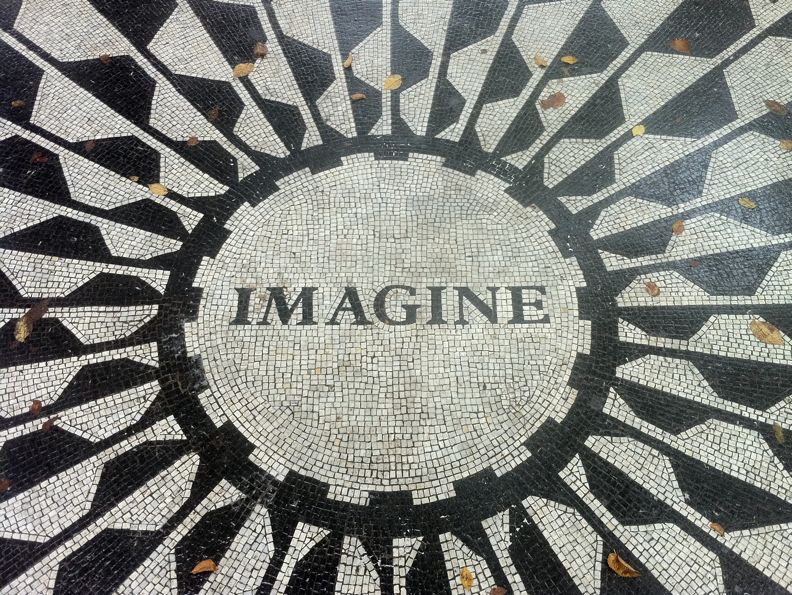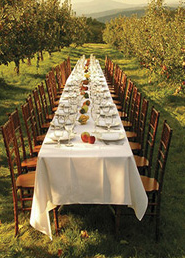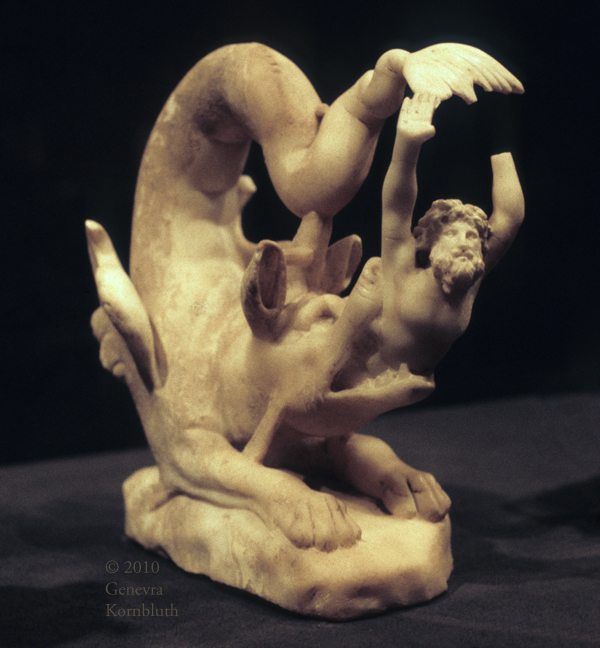 judgment,
judgment,  judgment day
judgment day  Thursday, August 13, 2015 at 11:21AM
Thursday, August 13, 2015 at 11:21AM  The only people looking forward to Judgment Day are the crazy people, right? Perhaps it depends on how well you know the Judge. Our popular notions of Judgment Day—and God’s judgment—are filled with apocalyptic trembling: floods, earthquakes, fire and brimstone. God’s coming back, and he’s angry! Jesus, too: he came to seek and save the lost, but that was the first time—watch out for his second time around. It doesn't quite add up, does it?
The only people looking forward to Judgment Day are the crazy people, right? Perhaps it depends on how well you know the Judge. Our popular notions of Judgment Day—and God’s judgment—are filled with apocalyptic trembling: floods, earthquakes, fire and brimstone. God’s coming back, and he’s angry! Jesus, too: he came to seek and save the lost, but that was the first time—watch out for his second time around. It doesn't quite add up, does it?
It has not always been so, nor is it even so everywhere today. The oppressed cry out for deliverance because the Day of Judgment brings the Deliverer. In C.S. Lewis’ The Lion, The Witch, and The Wardrobe, the creatures of Narnia comfort themselves with the chant,
Wrong will become right, when Aslan comes in sight.
At the sound of his roar, sorrows will be no more
When he bares his teeth, winter meets its death
And when he shakes his mane, we shall have spring again.
Nor did Lewis create this hope. He got it from the Old Testament prophets, who eagerly awaited “the great and terrible day of the Lord.” Even the religious folk in Jesus’ day yearned for the deliverance of God, even if it was for the wrong reasons.
And what about you? Is the return of Jesus an event to be feared, celebrated, or both? And most importantly: why do you feel the way you do? Since I asked you, I should probably share my biases with you up front. I have at least three:
There is a Judge, and there is justice. Our modern values resist these very ideas. We see the guilty go free. We watch the poor suffer. Westerners decry a CEO’s lavish compensation as “unfair” even while we ourselves live like first world kings, oblivious toward third world realities. We are daily tempted toward cynicism and hopelessness. People of faith should know better. Abraham, the father faith, argued with God asking, “Will not the Judge of all the earth do right?” Abraham cried mercy over Sodom and Gomorrah, because he trusted in the God’s judgment. Human history has a destination, and at the end of the road there sits a Judge.
I trust the Judge. Our workaday images of courtrooms and judges are cluttered with foolish legal distinctions, human drama, and corruption. The Great Judge is nothing like our childish games. In that day, when God puts on the robes of judgment, our opinions of law and justice will be seen for the pale imitations of small minds that they are. There’s no getting around it, the Creator of the Universe is the Great Judge of all humanity, and all human history. He not only has the right and the power to be judge, he has the knowledge and wisdom as well.
Mercy triumphs over judgment. I trust the Judge because the only Person in the universe with a true right to judge is the same One who also longs to say, "Well done, Good and faithful servant, enter into the joy of your Master." What’s more, it’s within my reach to be like Him and show mercy. When we display humility, kindness, and mercy, we reflect God’s image. The Judge loves mercy; it’s his default position. If the Old Testament could be said to have a mantra, it might be “His loving kindness endures forever.” The very Hebrew word for loving kindness, chesed, has been rendered as love, faithful love, loving kindness, mercy, grace, and compassion. Why choose? I think chesed can mean all of them at once.
These are my biases. And convinced as I am that God is deeply, powerfully good, I yet shudder at the notion of my personal moments before the Judge, and the great and terrible day of the Lord, whenever it may come.
Aslan will indeed set things right; yet it will shake the very foundations of our fallen world. I look forward to judgment as I might look forward to serious surgery: a necessary goodness that still causes me to tremble. In the end, all I can do is trust the Great Physician.
Why not receive Students of Jesus in your inbox? Subscribe to our email newsletter and never miss a post.
 Tuesday, March 3, 2015 at 09:55AM
Tuesday, March 3, 2015 at 09:55AM  Forty-five years ago John Lennon asked us to use our imagination. He challenged us to imagine a world with no heaven, no countries, no possessions, nothing to kill or die for, and no religion, too. I will freely admit my imagination is too limited to answer his call. I have, however, bent my imagination toward a world without judgment and condemnation.
Forty-five years ago John Lennon asked us to use our imagination. He challenged us to imagine a world with no heaven, no countries, no possessions, nothing to kill or die for, and no religion, too. I will freely admit my imagination is too limited to answer his call. I have, however, bent my imagination toward a world without judgment and condemnation.
Jesus urged us to listen carefully: “Truly, truly, I say to you, he who hears My word, and believes Him who sent Me, has eternal life, and does not come into judgment, but has passed out of death into life.” I hear his words as a freedom-call to break away from judgment. Too often our religious world-view becomes a calling to judge others: their life-choices, their doctrine, their faith expressions. We think we are doing God’s work when in truth judgment is the way of the world. We swim in a sea of judgment; we are soaked with argument, division, factions and strife.
But imagine there’s no judgment—I wonder if you can.
The apostle Paul saw the Kingdom gospel as a call toward a world free from human judgment:
“I care very little if I am judged by you or by any human court; indeed, I do not even judge myself. My conscience is clear, but that does not make me innocent. It is the Lord who judges me. Therefore judge nothing before the appointed time; wait until the Lord comes. He will bring to light what is hidden in darkness and will expose the motives of the heart. At that time each will receive their praise from God.”
I find beauty and balance in Paul’s words: there is a Judge, and a time of accounting—but we are not the Judge, and now is not the time.
Judgment brings death, but not in the way we expect: each time we judge the world around us we bring death upon ourselves. Judgment leads us to feel-good prayers that begin, “I thank you, God, that I am not like other men . . .” Judgment causes us to forget that we struggle not against flesh and blood, that our conflict is elsewhere. Judgment causes us to divide the world into Us and Them, when in fact we all found ourselves in the same boat, and needed the grace of God to lift us from the sinking ship.
Human judgment is our attempt to become a god. Human judgment is the way of the world and a tool of the Adversary. Beware the gavel of judgment in the hands of a fallen world—we will always be found wanting: not smart enough, not rich enough, not pretty enough. The judgment of this age looks only on the surface. The judgment of this age knows nothing of secret sacrifice and humble hearts. The judgment of this age is concerned only with results.
I believe in judgment—but only from the perfect Judge who truly knows and sees the intent of every heart. My only hope is in a great and final Judge who overrules the verdict of this world. This world pronounces judgment; High Court of heaven overrules it. I know I will face a judgment at the end of days, but I rest in the comfort that the only one with the right or ability to judge is the very one who longs to welcome me home.
 Monday, April 22, 2013 at 09:55AM
Monday, April 22, 2013 at 09:55AM  I used to think this was so clever: as a Protestant pastor I would refer to Roman Catholics as our “cousins.” I thought it highlighted our close association with Catholics while subtly reminding the listener of the differences between the great Reformation divide. Those Catholics are family, but only cousins. Pretty witty, eh? Not really. I’m ashamed to say that I did so for years.
I used to think this was so clever: as a Protestant pastor I would refer to Roman Catholics as our “cousins.” I thought it highlighted our close association with Catholics while subtly reminding the listener of the differences between the great Reformation divide. Those Catholics are family, but only cousins. Pretty witty, eh? Not really. I’m ashamed to say that I did so for years.
Eventually the still small voice of the Spirit began to get through. “Really, Ray? Do you really mean to say these people do not have the same Father?” I tried to argue with the voice for a while. “These people have such different practices.” I answered. “Their church is full of cultural influences that have nothing to do with the Scripture.” Case made, right?
The Spirit’s voice is gentle but strong: a velvet granite breath. “And your church? Don’t your practices seem strange to Baptists or Presbyterians? And what about the cultural influences in your church? Perhaps the Apostle Paul would have a thing or two to say about them?” Eventually I acknowledged these billion-plus people as part of God’s family. They are brothers and sisters, who call Jesus Lord and King. My opinions of their practices did not matter. God’s opinion does.
Then a marvelous thing happened. I discovered the Banqueting Table was longer than I had imagined. It stretched beyond my fleshly vision. I discovered I had been invited to come and feast, not criticize. I beheld sisters and brothers I had never known before. If I revered the Father why not revere the family?
And one more thing happened. A spirit of criticism began to lift from my mind. The real issue had never been about Protestants and Catholics. The issue was my critical, demanding heart. The issue was my self-appointed position as judge and jury over all God’s Kingdom (such a big Kingdom, and such a tiny judge!) I no longer felt the need to walk the police beat of orthodoxy. If a few impostors came to the feast, I knew the Father could choose who should eat and who would be shown the door. I was free to find the best in people and ignore their flaws. The same Spirit who corrected me could correct them.
So I suggest this week’s meditation: Is it possible we criticize other Christians publicly because inwardly we don't see them as family?
 Monday, January 7, 2013 at 09:52AM
Monday, January 7, 2013 at 09:52AM  Moby Dick wins. A crazy Southern guy shoots Lincoln at the Ford Theatre. Bruce Willis is dead the whole time in the The Sixth Sense. Sometimes it pays to steal a peek at the back of the book. It can change the way you see everything.
Moby Dick wins. A crazy Southern guy shoots Lincoln at the Ford Theatre. Bruce Willis is dead the whole time in the The Sixth Sense. Sometimes it pays to steal a peek at the back of the book. It can change the way you see everything.
Or take Jonah. The book, more accurately. If you read it backwards you discover God’s not mad at Nineveh at all. His heart is broken over a great city, filled with people so disoriented they have forgotten their right from their left.
It’s a short book. Read along with me--backwards.
Jonah 4:10 ~ It turns out God loves people, even remarkably screwed up people: “Nineveh has more than a hundred and twenty thousand people who cannot tell their right hand from their left, and many cattle as well. Should I not be concerned about that great city?”
Jonah 4:2-3 ~ It turns out that the Holy Man would rather die than watch God forgive people who don’t deserve it. “That is why I was so quick to flee to Tarshish. I knew that you are a gracious and compassionate God, slow to anger and abounding in love, a God who relents from sending calamity. Now, O Lord, take away my life, for it is better for me to die than to live.”
Jonah 3:4 ~ It turns out that some judgment messages are actually God’s way of reaching out to people: “Jonah started into the city. He proclaimed: “Forty more days and Nineveh will be overturned.”
Jonah 3:1 ~ It turns out that even religious bigots should get a second chance. “Then the word of the Lord came to Jonah a second time.”
Jonah 2:10 ~ It turns out vomit is gross.
Jonah 2:8 ~ It turns out God’s grace is inexhaustible, but we have to make room for it: “Those who cling to worthless idols forfeit the grace that could be theirs.”
Jonah 1:14 ~ It turns out pagan sailors know God better than we think: “Then they cried to the Lord, “O Lord, please do not let us die for taking this man’s life. Do not hold us accountable for killing an innocent man.”
Jonah 1:1 ~ It turns out God’s a pretty good poker player, don’t you think? “Go to the great city of Nineveh and preach against it, because its wickedness has come up before me.”
This week's meditation? Don't be so quick to judge others (pagans, sailors, or prophets) until you know the end of the story.